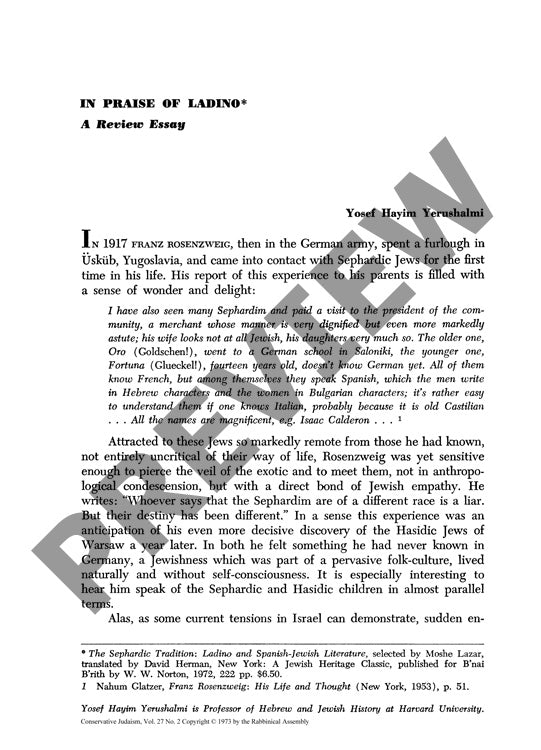In the Praise of Ladino a Review Essay
Couldn't load pickup availability
Moshe Lazar and David Herman's "The Sephardic Tradition: Ladino and Spanish-Jewish Literature" represents a pioneering yet flawed attempt to introduce English-speaking audiences to the rich vernacular culture of Sephardic Jewry. Through comparative textual analysis and historical contextualization, this review reveals both the anthology's valuable contributions and its significant limitations. The collection spans five distinct sections—Ladino ballads, the fifteenth-century Poema de Yogef, Moroccan Sephardic legends, proverbs, and a seventeenth-century allegorical play by Daniel Levi de Barrios—offering readers a broad sampling of Sephardic literary forms. However, the anthology suffers from misleading historical claims, particularly regarding Portuguese Jewish history, and draws problematic distinctions between "oriental" and "occidental" Sephardic communities. The editorial decisions, including disproportionate space allocation to two lengthy works and the puzzling exclusion of Portuguese-Jewish literature, further compromise its effectiveness. The anthology also fails to adequately situate vernacular literature within broader Sephardic intellectual traditions. Nevertheless, for Ashkenazic readers seeking entry into Sephardic cultural heritage, the collection provides valuable insights into a Jewish literary tradition distinguished by its preservation of Iberian cultural memories and unique fusion of secular and religious themes.

More Information
-
Physical Description
-
Publication Information
Published 1973
ISBN
-
Publication Credits
Yosef Yerushalmi

